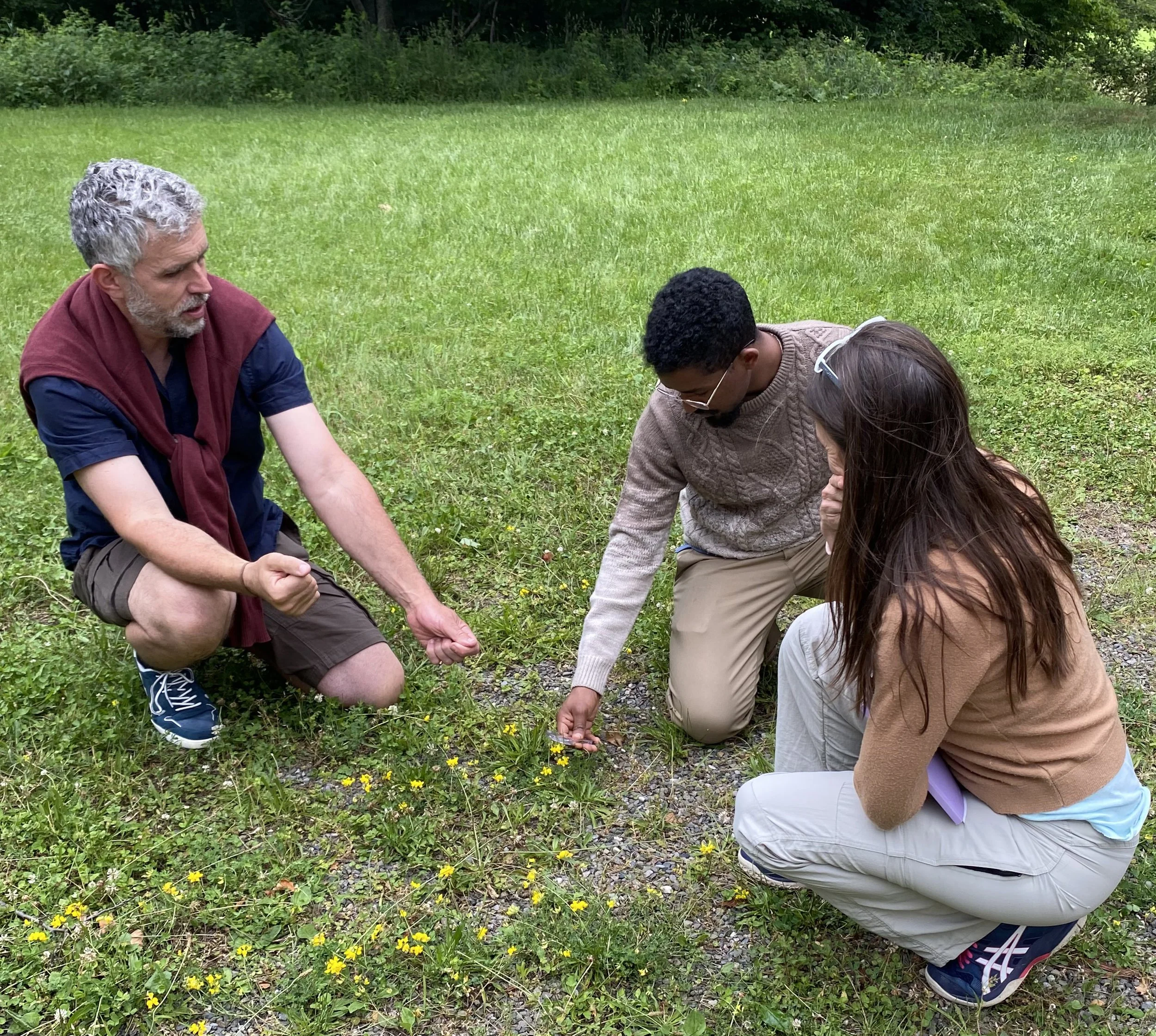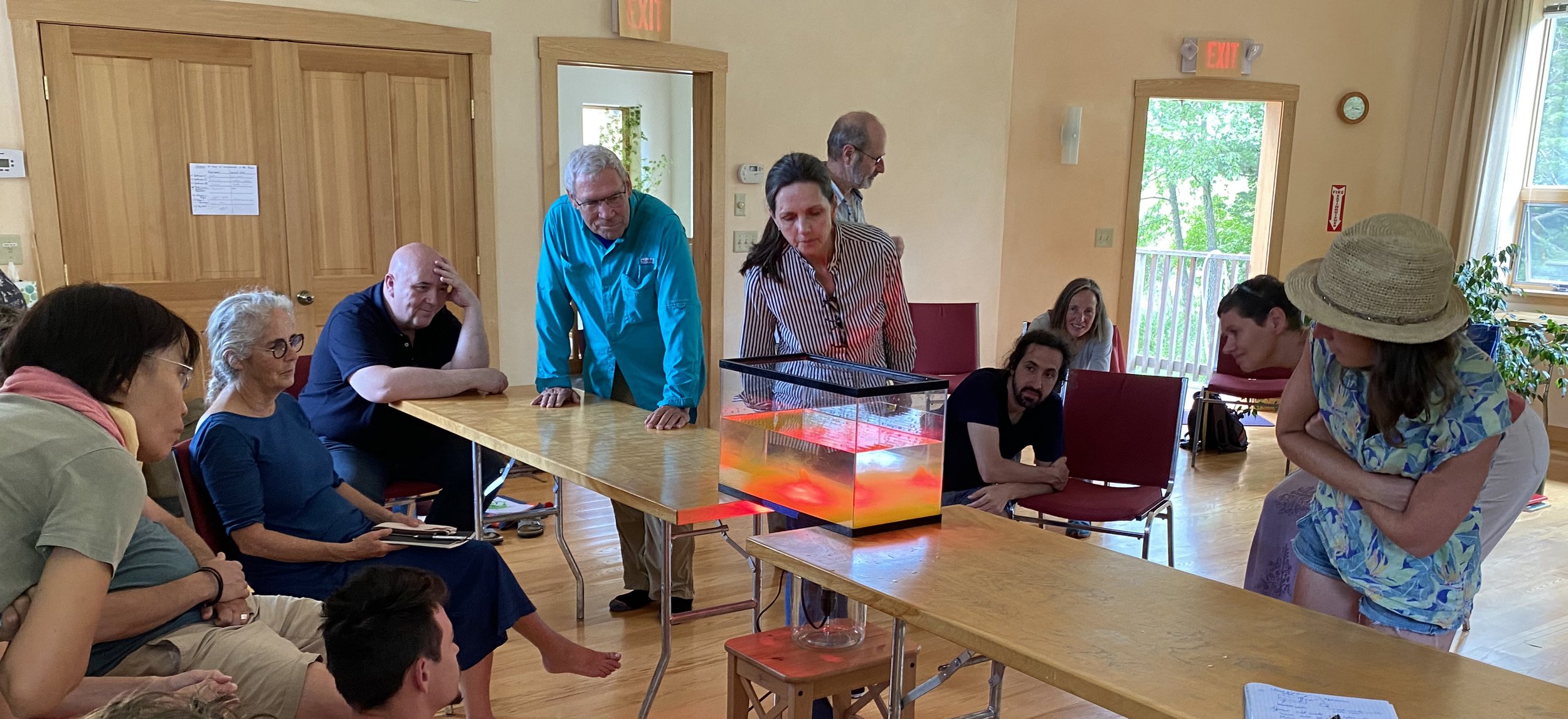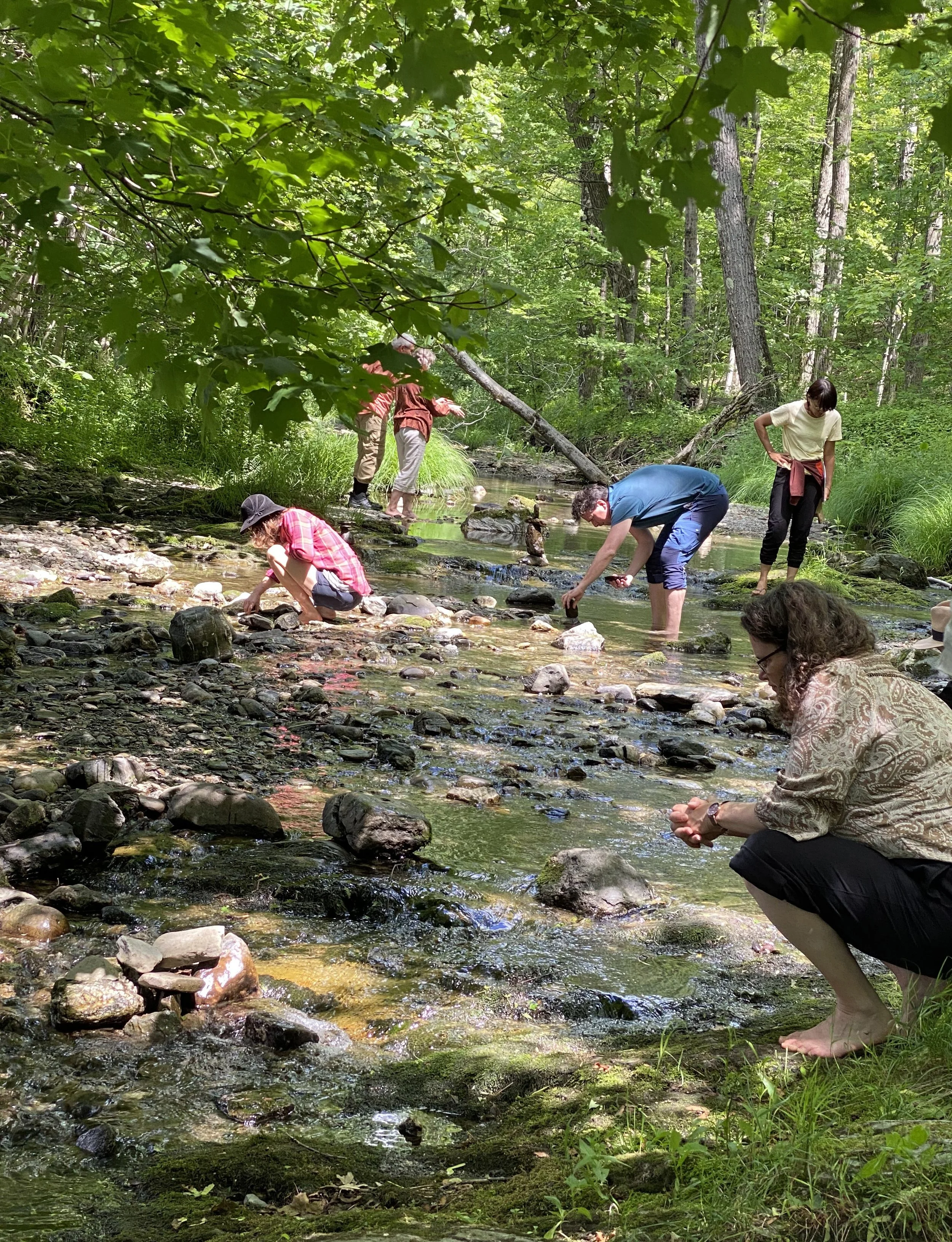Encountering Nature
and the Nature of Things
Foundation Course in Goethean Science
Next Foundation Course Begins March 2026
Application Deadline February 1, 2026
NOTE: Applications are accepted in the order of their submission. The course often fills up
before the official February 1st deadline. If you are interested, apply soon!
Course Outline
(a) Three introductory Zoom sessions: (i) Meet and greet the week of March 2 and (ii) Two text based seminars, the first on the week of March 23 and the second the week of May 4.
(b) First residential intensive: Mon - Sat, June 22 - July 4, 2026
(c) Nonresidential guided study and practice: August 2026 to June 2027
(d) Second residential intensive: Mon - Sat, June 21 - July 3, 2027
“If we want to attain a living understanding of nature, we must follow her example to become as living and flexible as nature herself.” — GOETHE
Cohort V of our 2024-2025 Foundation Course with teachers Henrike Holdrege, Craig Holdrege, Jon McAlice, and John Gouldthorpe
This program offers participants the opportunity to move towards a fluid, participatory understanding of the experienced world. When we begin to apprehend the dynamic and relational nature of the world, we embark on a scientific pathway to its living qualities. Nature begins to show herself in surprising new ways, and our connection to her deepens.
With the will to learn from the phenomena, we can develop what Goethe called a “delicate empiricism.” This demands practice and the willingness to confront ingrained habits of thought that prevent us from experiencing nature as creative activity. Overcoming such habits and developing new flexible ways of seeing and thinking are not matters of surface change. They call for an in-depth transformation, something this program aims to facilitate.
“The knowledge [we] seek is not meant for controlling the world, but, rather, for unlocking it and letting a mute world become one that speaks to us in a thousand places.” —Erwin Straus
Residential Summer Intensives at the Institute:
The course includes a two-week summer intensive at The Nature Institute early in the program and a two-week intensive the following summer to complete the training. We introduce the practice of a phenomenological study of natural world by engaging with different realms of nature: light and color; the qualities of the solid, fluid, air, and warmth; plant metamorphosis; animal morphology and behavior. In all this we explore the challenges of human inquiry and our place as human beings in the world. Each day includes place observations and artistic work. Here is an example of the daily schedule.
The Nature Institute provides an ideal setting for a nature-based course of study. It is located in rural eastern New York, at the foot of the Taconic Hills. Surrounded by forests, meadows, wetlands, creeks, ponds and many transitional habitats, the Institute is also the steward of a nearby 29-acre nature preserve. The Institute neighbors Hawthorne Valley, with its biodynamic farm, Farmscape Ecology program, natural food store, and K-12 Waldorf school.
Nonresidential Guided Study and Individual Practice:
The course begins in the spring with a few months of nonresidential guided study to prepare for the first residential intensive in the summer. Following that intensive, there are 11 months before students return to the institute for the concluding summer intensive. During this phase of the course, participants will regularly:
Carry out and document observation-based practice and reflection
Study and discuss, via an online platform, selected texts to deepen the understanding of phenomena-based contextual science (here is the Table of Contents of the course reader)
The text study will be facilitated online by John Gouldthorpe. In addition, each student will have a core faculty person as mentor.
from participants who completed our Foundation Course.
Who Is the Program For?
For people who are deeply interested in nature and serious about developing an understanding and practice of an approach to science that is contextual, qualitative, and holistic — what we often call “Goethean science.” For example, the program offers scientists, educators, farmers, medical practitioners, and undergraduate or graduate students the opportunity to develop practices that can instill new life into their work. We expect participants to have some previous familiarity with this approach.
The program has a minimum enrollment of 10 and a maximum of 25 participants. College students should inquire about the possibility of receiving course credits.
A good command of English is a requirement for participation.
Tuition: $4,000
We have kept the fee as low as possible. If you are seriously interested in the course, but your financial situation would prohibit your attending, please apply for financial assistance when you fill out the application form. Some scholarship funds are available.
If accepted, all students need to pay a $500 non-refundable deposit in order to hold their place.
Applying for the Course:
Please fill out the online application form.
We review applications after they have been received. Soon thereafter you will hear from us whether you have been accepted into the program.
Since there is limited space in the course, we recommend you apply early. The course may fill before the February 1, 2026, application submission deadline.
Housing, Transportation, and Food:
We can direct you to accommodations with a family ($30 to $75 per night) or you can stay at one of several local motels bed-and-breakfasts (here’s a list). If you are coming from far away, we have suggestions for public transportation to the Institute (here) and can also help coordinate local transportation while you're attending the course. Most lodging will not be within walking distance.
Concerning food, we provide morning and afternoon snacks, but otherwise course participants are responsible for their meals (the Hawthorne Valley Farm Store has extensive organic food and deli selections and is within walking distance of the Institute). At most homes you can prepare your own breakfast, and you can also use the small kitchen at the Institute for lunch.
Core Faculty:
Craig Holdrege is a biologist, educator, and the director/co-founder of The Nature Institute. He is deeply interested in the interconnected nature of things and how we can understand life in truly living ways as a basis for responsible human action.
Henrike Holdrege is a mathematician, biologist, educator, and co-founder of The Nature Institute. She makes every effort to ground her teaching in human experience and to break through abstractions to what can truly touch us in the world through careful, perceptive, and thoughtful inquiry.
Jon McAlice has been active in the international Waldorf school movement for many years as a teacher and lecturer. He has a special interest in the psychology of learning and the senses.
John Gouldthorpe has a background in archetypal psychology. The main thread in his interests today is the relationship between perception, conception, imagination, and identity.
For more information please contact us:
Telephone: 518-672-0116
Email: info@natureinstitute.org







